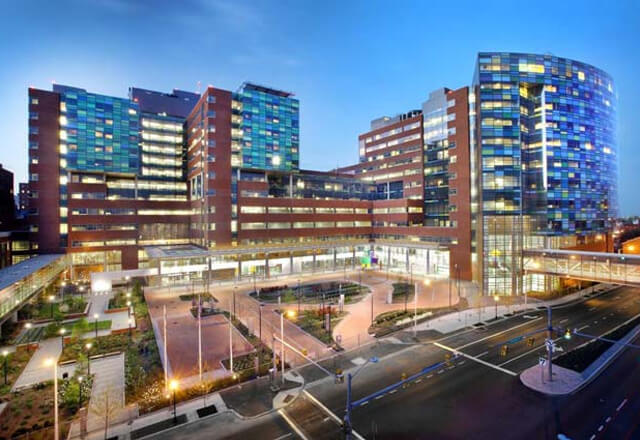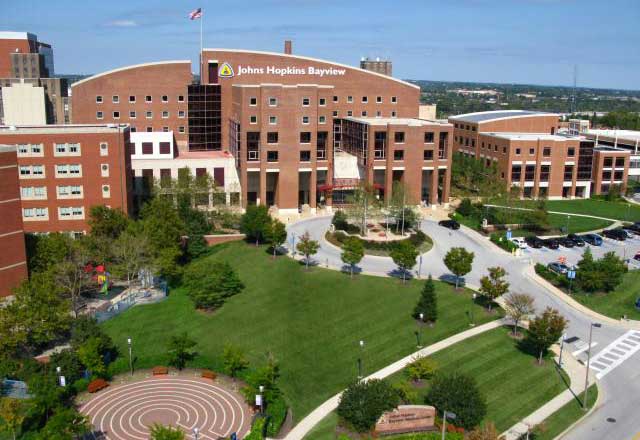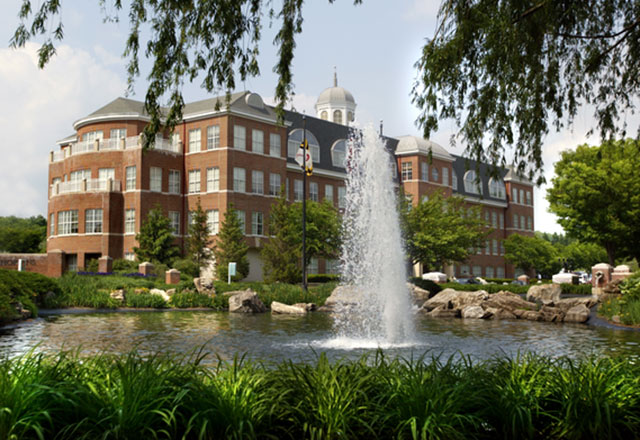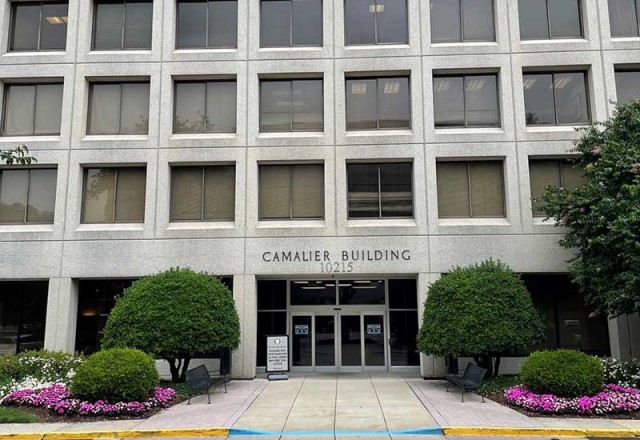Preparing for Brain Surgery
Once your treatment plan has been designed, we will provide you with both written and verbal instructions. The following general information may be helpful in planning for some of our procedures.
Our office will contact your insurance company for preauthorization. You will also receive a schedule of your preoperative appointments from your physician’s office.
- Preoperative Testing
- Consent Forms
- Medications
- MRI or CT Scans
- Admission
- Surgical Experience
- After Surgery
- Postoperative Visit
- Pathology
Preoperative Testing
Within two weeks of your scheduled surgery, you will need a history and physical examination. If your insurance company requires that this be performed by your primary care physician, please schedule your own appointment and ask your primary care physician to fax results to our office as soon as possible. Regardless of insurance, you will need an appointment at the Preoperative Center in the Johns Hopkins Outpatient Center for the following:
- Review of outside history and physical
- Instructions on eating, drinking and taking necessary medications before surgery
- A discussion about anesthesia and what will happen before the surgery with a nurse or doctor
If applicable, the following will happen at this appointment as well:
- Blood tests
- Chest x-ray
- EKG
- MRI or CT scan
Consent Forms
Your surgeon will talk to you about the benefits and risks of surgery and answer any questions you may have prior to asking you to sign three consent forms. When possible, this will take place at your clinic visit.
Medications
You will continue to take most of your regular medications before and after your surgery. You physician may also ask you to take some additional medications. They may include the following:
- Dexamethasone (Decadron®) is a steroid that will help keep the brain from swelling. The swelling can be caused by the tumor or surgery. You will take this medication before, during and after surgery.
- A stomach protective agent will also be prescribed if you have been placed on steroids because they can cause stomach upset and irritation.
- Anti-seizure medications are also prescribed for some patients. Depending on the location of the tumor or the type of surgery, brain irritation that can lead to seizures can occur.
- When you are discharged from the hospital after the surgery, you will get additional instructions on how to continue to take these medications at home.
Do not take Aspirin or anti-inflammatory drugs (e.g. Advil®) for at least two weeks before your surgery. Your pharmacist can identify non-steroidal anti-inflammatory drugs (NSAIDS). If your medical doctor ordered you to take aspirin or blood thinners, such as warfarin (Coumadin®), please check with him/her before stopping. If you have any questions about medications or if you have any problems you think are caused by your medications, please call your neurosurgeon’s office directly.
MRI or CT Scans
A special MRI or CT of your brain may be taken a day or two before surgery. This is called a WAND MRI or CT. Small, round stickers (fiducials) will be placed around your head and the scan will be taken. We ask that you do not remove these stickers prior to surgery — but please do not be concerned if one or two fall off. This means that you may not wash your hair after the fiducials are placed. This allows the surgeon to use a navigation system in the operating room, assisting him/her in removing your tumor by providing images of your brain.
Admission
You are usually admitted on the day of surgery. An IV will be placed in your arm. Additional IVs and catheters will be placed after you are asleep. This will be explained in further detail at the preoperative visit.
Surgical Experience
Your surgeon will have one or more assistants. Anesthesiologists and nurses are also in the operating room. Surgery time varies, based on the size and location of the tumor. Your family should wait in the OR waiting room. This will allow the operating room staff to give your family updates during the surgery, and your surgeon to then talk to your family after the procedure is complete.
The Patient Experience | Johns Hopkins Neurosurgery
If you or a loved are scheduled for surgery at The Johns Hopkins Hospital, find out what to expect on the day of the procedure. Watch to learn more about where surgery is performed and where patients will recover.
After Surgery
You will probably be in the Neuro-Critical Care Unit (NCCU) overnight. You will have IVs and a heart monitor on as well as a catheter in your bladder. A loose-fitting mask may be placed over your mouth, which will deliver oxygen. You will also have a cause dressing on your head for a day or two. When you leave the NCCU, you will go to one of the neurosurgery nursing units. A typical hospital stay is three or four days. A postoperative MRI or CT scan will be performed the day after surgery.
You should not experience a lot of pain after surgery. Most people take acetaminophen (Tylenol®) for minor discomfort. Let your nurse know if you have any pain or headaches and your medications can be changed, if necessary.
We expect that you will be out of bed eating and taking short walks starting the day after surgery. Once you are eating and drinking normally, the IVs will be removed from your arm. The nurses will keep track of what you eat and drink, as well as how much you urinate. You may be told to drink less than usual for a few days.
You can bring some comfortable clothes (e.g., a bathrobe) to wear after surgery.
After you are released from the hospital, please call your surgeons office to make a postoperative appointment.
Postoperative Visit
Staples or stitches will be removed about one week after surgery. In some cases, they will need to stay in for two weeks. Please call your neurosurgeon’s office to schedule this. You may shampoo your hair two days after surgery, even if you have stapes or stitches in. Once they are removed, however, please wait 24 hours to shampoo. Once you are able to wash your hair, please use a mild baby shampoo.
Expectations After Brain Tumor Treatment
Neurosurgeon Jon Weingart explains the follow-up care a brain tumor patient and their family might expect after a brain tumor surgery and/or chemotherapy.
Pathology
It usually takes about one week to find out the name of your tumor. Your surgeon will go over this report when you come in for a postoperative visit.
Medical and Radiation Oncology Locations
-
The Johns Hopkins Hospital
Baltimore, MD
-
Skip Viragh Outpatient Cancer Building
Baltimore, MD
-
Green Spring Station
Lutherville, MD
-
Suburban Hospital
Bethesda, MD
-
Sibley Memorial Hospital
Washington, DC






